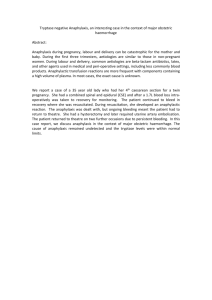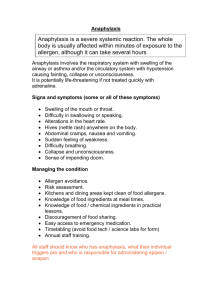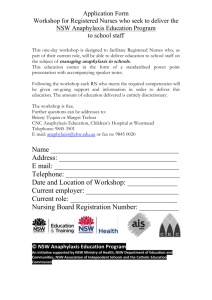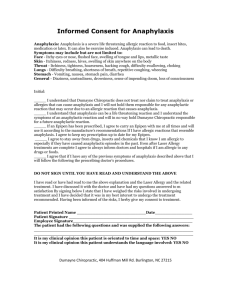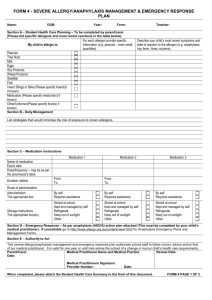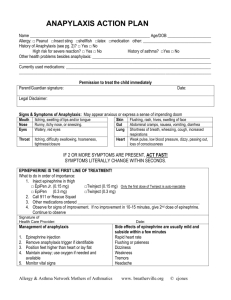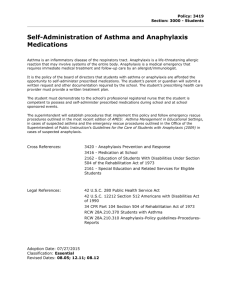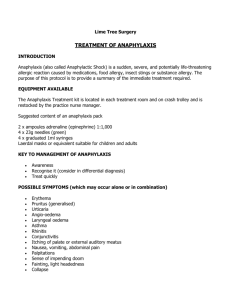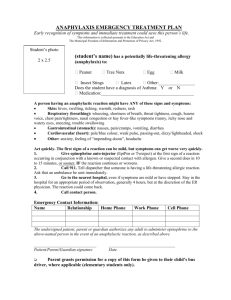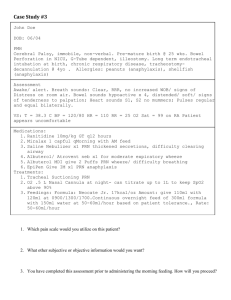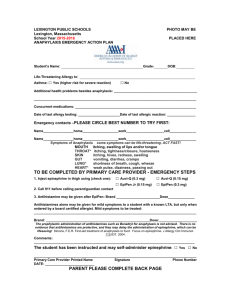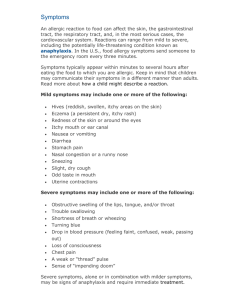Sample School Policies
advertisement
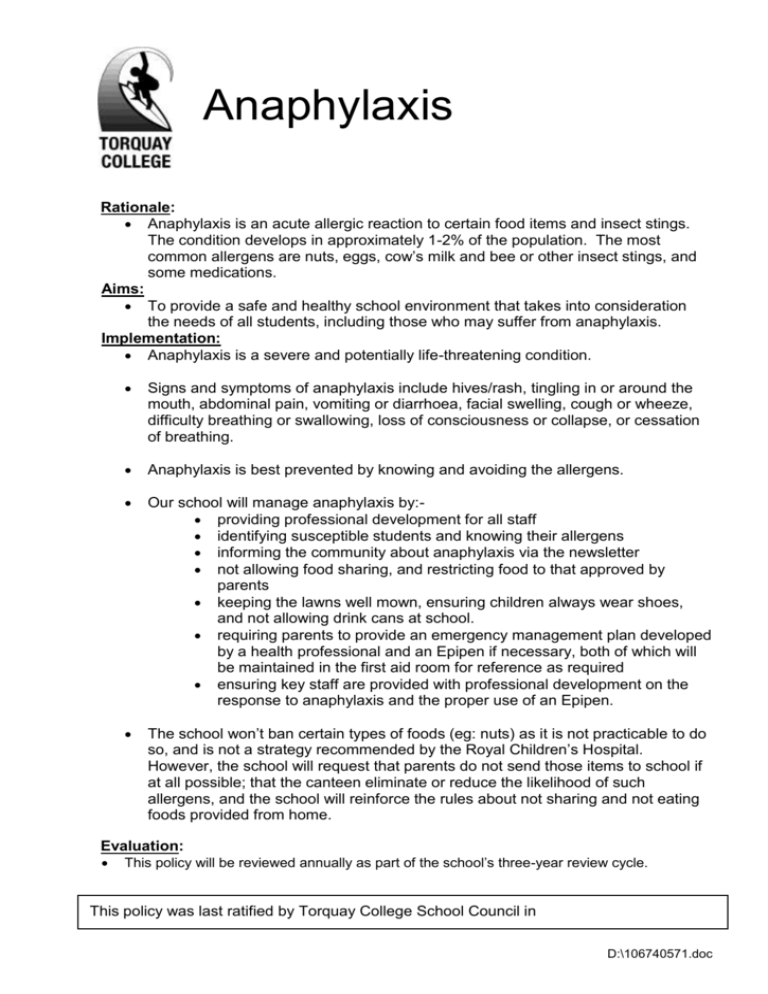
Anaphylaxis Rationale: Anaphylaxis is an acute allergic reaction to certain food items and insect stings. The condition develops in approximately 1-2% of the population. The most common allergens are nuts, eggs, cow’s milk and bee or other insect stings, and some medications. Aims: To provide a safe and healthy school environment that takes into consideration the needs of all students, including those who may suffer from anaphylaxis. Implementation: Anaphylaxis is a severe and potentially life-threatening condition. Signs and symptoms of anaphylaxis include hives/rash, tingling in or around the mouth, abdominal pain, vomiting or diarrhoea, facial swelling, cough or wheeze, difficulty breathing or swallowing, loss of consciousness or collapse, or cessation of breathing. Anaphylaxis is best prevented by knowing and avoiding the allergens. Our school will manage anaphylaxis by: providing professional development for all staff identifying susceptible students and knowing their allergens informing the community about anaphylaxis via the newsletter not allowing food sharing, and restricting food to that approved by parents keeping the lawns well mown, ensuring children always wear shoes, and not allowing drink cans at school. requiring parents to provide an emergency management plan developed by a health professional and an Epipen if necessary, both of which will be maintained in the first aid room for reference as required ensuring key staff are provided with professional development on the response to anaphylaxis and the proper use of an Epipen. The school won’t ban certain types of foods (eg: nuts) as it is not practicable to do so, and is not a strategy recommended by the Royal Children’s Hospital. However, the school will request that parents do not send those items to school if at all possible; that the canteen eliminate or reduce the likelihood of such allergens, and the school will reinforce the rules about not sharing and not eating foods provided from home. Evaluation: This policy will be reviewed annually as part of the school’s three-year review cycle. This policy was last ratified by Torquay College School Council in D:\106740571.doc
